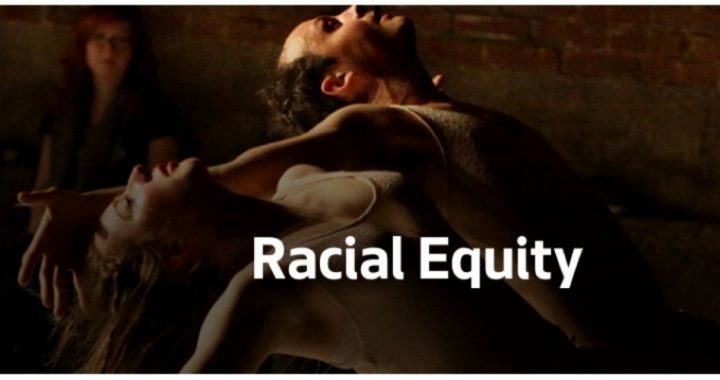
Seattle taxpayers are footing the bill in the latest left-wing indoctrination efforts regarding so-called “white privilege.” In this particular circumstance, the focus is actually on “white fragility,” and it is part of a set of “racial equity” workshops that Seattle’s Office of Arts and Culture is hosting in August and September.
According to Seattle’s city website, white fragility is defined as the “inability for white people to tolerate racial stress.” The scheduled workshops, organizers say, will help to address and correct that inability, as they will provide “the perspectives and skills needed for white people to have more constructive cross-racial interactions.”
“Changing the power dynamic in our society and addressing persistent race and social justice inequities is a fundamental pillar of the work of the City of Seattle and the Office of Arts & Culture (ARTS). Art allows us to express ourselves and see other people’s realities in ways that can break down barriers and lead to change within ourselves and our institutions,” the city website states. “As one tool to address these inequities, ARTS is offering a series of workshops addressing racial equity, implicit bias and white fragility in August and September.”
The workshops include “White Fragility” with Robin DiAngelo, “Implicit Bias” with Darlene Flynn, and “Leading with Racial Equity for Structural Transformation” with Scott Winn.
The concept of “white fragility” was coined by DiAngelo, an associate professor of education at Westfield State University in Massachusetts, in her 2011 academic analysis with that title. DiAngelo’s paper claims that white fragility is a component of white privilege in that white people in North America have been able to insulate themselves from any race-based stress, which enables them to perceive that racism does not exist and renders them unable to accept any challenge to the contrary.
According to Talking Points Memo (TPM), DiAngelo, who is white, said she came up with the term when she was a diversity trainer for the state of Washington and encountered white people who became hostile during discussions of race. “The participants were mostly white, working [in] offices that were 98 percent white, living lives of never having to see people of color, and they were incredibly hostile and mean when discussing anything about race,” said DiAngelo. “Some guys would pound their fists on the table in fury at being in a room where this discussion was taking place, [and] many sulked silently.”
The website explains that Seattle’s “White Fragility” workshop will be focusing specifically on how racism manifests itself through white people’s inability to tolerate racial stress and will equip white attendees with the perspectives and skills needed to be more constructive in their cross-racial interactions. The workshop will be led by DiAngelo, who has been assigned to co-design Seattle’s Race & Social Justice Initiative, so city residents will likely have more of these types of workshops to look forward to with her at the helm. DiAngelo has also completed the second edition of her book, What Does it Mean to Be White?: Developing White Racial Literacy.
“Implicit Bias” is defined on the city’s website as “the attitudes or stereotypes that affect our understanding, actions, and decisions in an unconscious manner and can have detrimental impacts in how we interact with others with regard to race.” The “Implicit Bias” workshop will therefore take attendees through the process of identifying such supposed bias, with the guidance of Darlene Flynn, who works in the Office for Civil Rights as a policy analyst and trainer for the city’s Race and Social Justice Initiative.
The “Leading With Racial Equity for Structural Transformation” workshop, it is said, will provide attendees the opportunity to better understand their own positions of advantage and disadvantage and how those understandings impact their experiences in the communities that they serve. Led by Scott Winn, policy and development lead for the City of Seattle Race and Social Justice Initiative (RSJI) and co-founder of Seattle’s Coalition of Anti-Racist Whites, the workshop will teach attendees strategies to help achieve racial equity.
Despite the controversial nature of the workshops, the Office of Arts and Culture defends its program as one that is a vital component in the movement toward racial equity. “We are offering these workshops because our office in partnership with the Office for Civil Rights (OCR), is committed to addressing and increasing community-wide awareness about existing inequities so that we, along with our cultural and community partners, can most effectively work together toward a vision of racial equity,” declared Erika Lindsay, communications manager for the city’s Office of Arts and Culture who confirmed to the Daily Caller that the workshops are taxpayer-funded.
Seattle’s workshops are just the latest efforts in an increasing trend to push the notion of racial inequality and white privilege — a trend at both the local and federal level — and one that seems bent on advocating for white people’s self-deprecation.
April, for example, witnessed the 17th Annual White Privilege Conference (WPC) in Philadelphia — an event organizers say is aimed at correcting a system in which minorities do not enjoy the same privileges as whites. “Our vision is to build a community committed to dismantling white privilege, white supremacy and oppression, every day, everywhere,” wrote Eddie Moore, Jr., founder and president of The Privilege Institute, which organizes the event.
Metro reports that this year’s conference was the most highly attended one yet, with 2,500 teachers, school administrators, and counselors present. White attendees at the event were targeted and asked to brandish merchandise such as T-shirts and wristbands that bore the phrase, “Got Privilege?”
Glen Allen High School in Henrico, Virginia, was in hot water earlier this year after showing an animated film that parents sharply criticized as “white guilt.” The video, entitled “The Unequal Opportunity Race,” was created by the African-American Policy Forum with the specific intent to show it in elementary and secondary schools, as well as college studies courses. It depicts white privilege through an animated cartoon, wherein two white runners are at a significant advantage in the race against two black runners, who are repeatedly confronted by obstacles.
The two black runners face everything from literal blockades and rainy weather, to historical blockades in the form of words flashed on screen, such as “Dred Scott,” “Manifest Destiny,” “Genocide,” and “Segregation.” Meanwhile, the white runners are displayed carrying dollar signs that continue to increase in size in an effort to highlight “wealth disparities,” which term is also flashed across the screen in case the point was not made clearly enough.
When parents complained about the video, Henrico County Superintendent Patrick Kinslaw issued a statement that seemed to both acknowledge the parents’ frustrations and simultaneously indicate support for the video’s message: “While we as educators do not object to difficult and constructive conversations about American history and racial discourse past and present, we understand why many people feel this video in particular was not the best way to deliver such an important lesson,” stated Kinslaw.
In June, the Justice Department announced that it will be mandating training for its employees to protect citizens against the unconscious bias of law-enforcement officers. Deputy Attorney General Sally Yates issued a memo indicating that the program will target “implicit biases,” which she says are unconscious but pervasive stereotypes.
“Implicit bias … presents unique challenges to effective law enforcement, because it can alter where investigators and prosecutors look for evidence and how they analyze it without their awareness or ability to compensate,” Yates stated in the memo.
The Justice Department contends that it is implicit bias that is behind arrest data that show black and Hispanic men are more likely to be stopped by police, despite clear evidence disputing claims of institutional racism. Nevertheless, the DOJ sees fit to spend taxpayer money on training over 28,000 department employees to overcome their supposed “implicit biases.”




